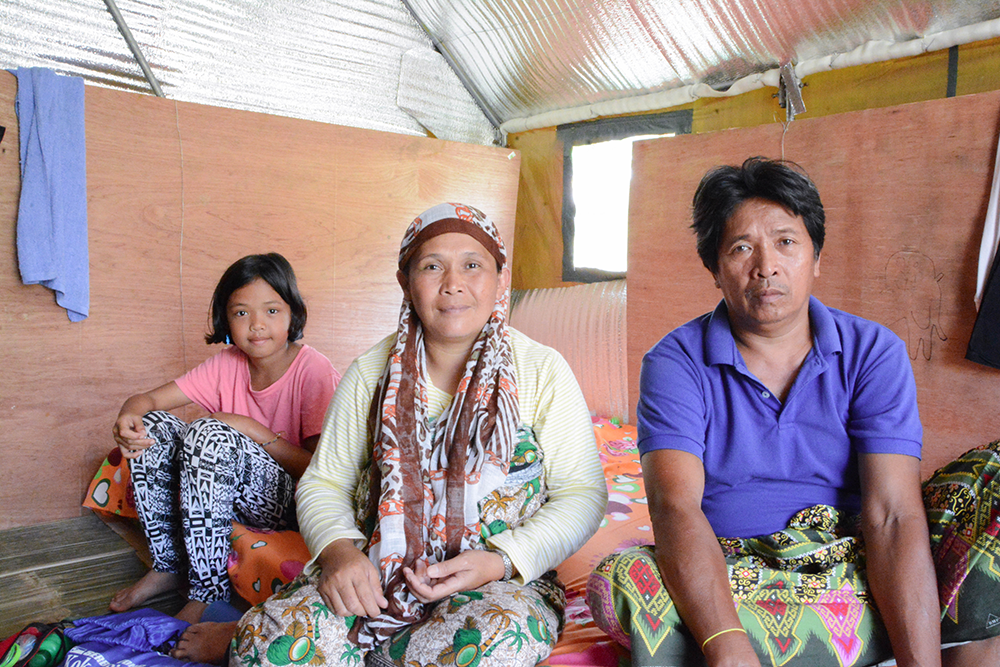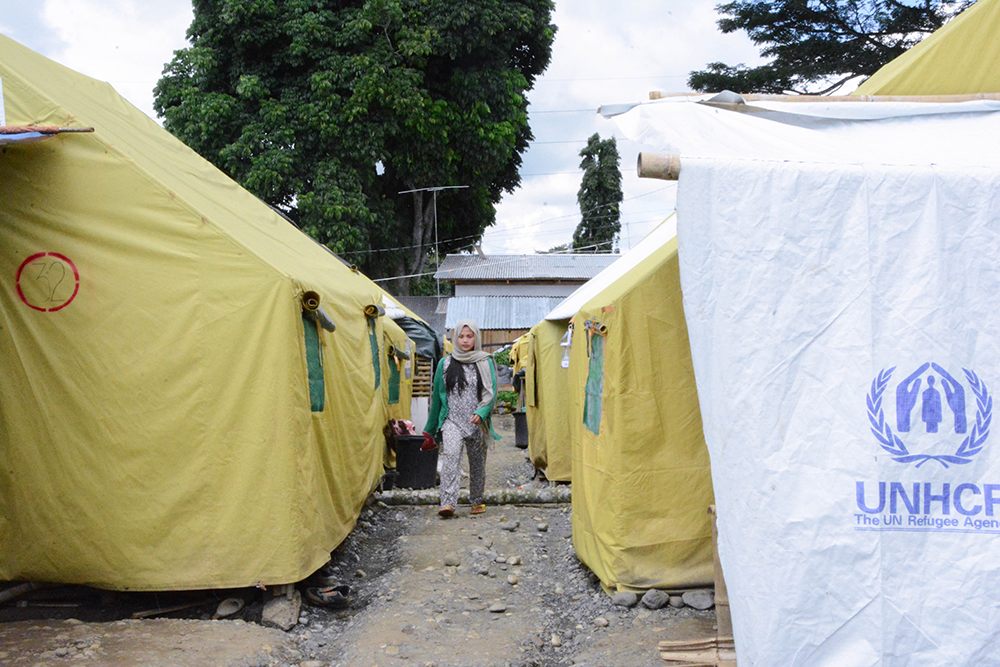Against the backdrop of conflict in Marawi City, people of different cultures and religions live in harmony amid diversity at the Pantar evacuation center in Lanao del Norte.
More than four months into the Marawi conflict, hundreds of thousands of families remain displaced after fleeing the city to escape the fighting. An estimated five percent of them live in government-maintained evacuation centers.
In nearby Pantar, Lanao del Norte, one evacuation center along the main highway hosts over 100 families and some 500 individuals. An overwhelming majority of them are Maranao Muslims, but there are also Christians, Tausugs, and mestizas (married to a Maranao) among them.
Despite the differences in their religions and cultures, however, Noraisah Arumpac, who serves as the “president” or focal representative in the center, says the people in the center have forged solidarity and stand as one community. Faced with the same trials in life, they have come together to support each other at a time of hardship.
Amid their difficult situation, the apprehensions between and among different tribes and religions have eased. “We don’t run into any disagreements here,” Noraisah says. “We live like one big family.”

Noraisah and Omar Arumpac, pictured here with their daughter Norhanah, have been staying at the Pantar evacuation center since 4 August. Photo: © UNHCR/A. Gonzales
The people who stay at the evacuation center have built solidarity ties despite the apparent differences in their beliefs and cultures. Noraisah herself shares that, in fleeing Marawi, she and her husband helped their Christian friends escape before evacuating with their own family.
“We evacuated late because we made sure to help our Christian friends first,” Noraisah says. “My family was afraid, but we knew our Christian neighbors were even more so.”
To forge a semblance of order among the community, the people in the evacuation center elect a leader per row of tents, and choose a president among those selected leaders. “In my row, I am the leader. I am also the president here,” shares Noraisah.
“As president, I have to make sure to respond to issues that need resolving. I have to be patient, helpful, and thoughtful,” she says.
Noraisah and the other row leaders also assist in distribution of relief goods among the families in the center. “We received all of our items from the government,” Noraisah says, gesturing at the household items like pots, pans, mattresses, toiletries, and food tucked into their tent.
“Once these items are released to us, I will keep them first if they have been withheld. These are for distribution to those who have registered to DAFAC,” she says, referring to the government’s Disaster Assistance Family Access Card system.
As president, Noraisah is also in charge of finding solutions to concerns raised by the community. “For example, if one family’s tent starts to leak, I will need to find a way to fix that and report it to the camp manager,” she says.
Leaking has been a problem for some of the families especially at the onset of the rainy season. The local government has requested UNHCR, the UN Refugee Agency, to provide tarpaulins to patch the leaks in some of the tents and serve as added protective covers for the families.

UNHCR has provided tarpaulins for added covering to the families staying at the Pantar evacuation center. Photo: © UNHCR/A. Gonzales
The other families in the community help in any way that they can. Noraisah’s husband, Omar, joins other men in the center whenever there are laborious tasks to do.
Asked if the community runs into problems, Noraisah just smiles and says, “We don’t run into problems here. We are all united. We accept that this is just another obstacle that we have to face all together.”
The people in the evacuation center have been together even before they were relocated to the Tent City on 4 August. Before then, they stayed at a nearby madrasah as classrooms were turned into small living quarters. Today, at the Pantar evacuation center, there is trust, order, and peace through solidarity amid the conflict that is still ongoing in Marawi.
Life hasn’t been easy for any of the displaced families seeking shelter at the center, but Noraisah says they are getting by in order to weather out the storm. Optimistic, she says, “This is just a test. We just need to persevere.”
Share on Facebook Share on Twitter